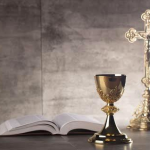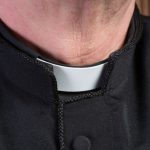#Nuns Too Speak Out About Their Sexual Abuse at the Hands of Catholic Priests

Senior Catholic Church officials from around the world are due to meet in Rome later this month to discuss their response to the sexual abuse crisis that has engulfed the institution.
Although until recently, the primary focus has been the sexual abuse of boys by priests and other Church members, women are now also beginning to speak up. Buoyed by the #MeToo movement, a group of women theologians convened a meeting last year called Voices of Faith, to share their stories of sexual abuse and harassment at the hands of male clerics.
Not new
According to reports, a document outlining the abuse of women was prepared by Irish Nun Maura O’Donohue for the Vatican 25 years ago. The Sister was told of many instances of priests abusing nuns, and she diligently had many of those incidents confirmed by priests and doctors.
The Catholic Church concealed the Sister’s the findings, but in the face of a recent public outcry Pope Francis has acknowledged that the Church knew about the abuse of nuns since at least the time when a France-based order had turned some sisters into ‘sexual slaves’.
In Australia
Domestically, there are suggestions the incidence of priests sexually abusing women is far from isolated, and many hope the #NunsToo movement will encourage victims to speak out and make formal complaints.
Evidence is mounting that for generations, the sexual abuse of women, children and vulnerable adults has been normalised by the hierarchy of the Catholic Church. There are reports of abuses at many levels of worldwide Church hierarchies, and many believe these cases are just the tip of the iceberg.
Global problem
Over the past few years, there have been several high profile court cases of sexual abuse by male members of the Catholic Church, as well as damaging independent investigations, such as the Royal Commission into Child Sexual Abuse in Australia, an extensive report from Germany which found that thousands of children were sexually abused by clerics over the past 70 years, and a lengthy police investigation in Chile which found a “culture of abuse” and pattern of inaction and concealment within the Chilean Catholic Church.
The scandal in Chile resulted in the Pope de-frocking a high ranking priest at the centre of the allegations. A grand jury in Philadelphia grand also recently found Catholic Church leaders protected more than 300 priest perpetrators.
And while Pope has publicly claimed the Church has ‘zero tolerance’ for abuse, he has not yet spoken publicly about the Royal Commission’s finding of more than 4,400 separate allegations of abuse against the Catholic Church.
Perhaps equally concerning is that at last year’s meeting of high-ranking Church officials at the Vatican, the Bishops Synod, Pope Francis intimated in his closing speech that the Church was being ‘persecuted over child sexual abuse’ claims. But with allegations so vastly widespread, and no longer solely centred on the abuse of children, it’s obvious that that the culture within the Church needs to change, not just for its own sake, but in line with community expectations.
The Church has gone so far as to defiantly refuse to report information regarding the sexual abuse of children obtained during confessions, implying they defer to the laws of their God rather than those of the land. In that context, many are sceptical about whether the Church even accepts the severity of its conduct let alone whether it will take steps to protect children and others it has abused.







